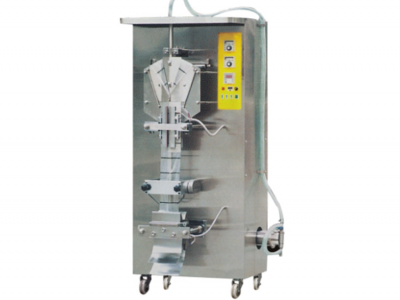Water treatment is a crucial step in the pharmaceutical industry, ensuring that the water used in manufacturing processes meets stringent quality standards. The use of untreated or improperly treated water can lead to contamination, compromising the safety and efficacy of medications. Therefore, pharmaceutical companies must implement effective water treatment methods to meet regulatory requirements and maintain their reputation for producing high-quality products. In this article, we will explore the importance of water treatment in the pharmaceutical industry and delve into some of the most common techniques used to ensure that pharmaceutical-grade water is produced consistently and reliably.
June 30, 2023

Importance of Water Treatment in the Pharmaceutical Industry
Water is a crucial component in the pharmaceutical industry as it is used for various purposes such as manufacturing, production, and testing. However, water quality plays a vital role in ensuring product safety, efficacy, and quality. Contaminated water can cause serious health issues and may lead to the loss of lives. Therefore, it is essential to have a water treatment system that meets regulatory standards and produces high-quality water.
In the pharmaceutical industry, water treatment plants are designed to remove impurities, microorganisms, and other contaminants from water to make it safe for use. The water treatment process involves several stages such as pre-treatment, primary treatment, secondary treatment, and final treatment. Each stage uses different technologies such as filtration, reverse osmosis (RO), ultraviolet (UV) disinfection, and chemical treatments to ensure that water meets the required standards.
Pharmaceutical companies face many challenges when it comes to water treatment. One of the significant challenges is selecting the appropriate technology that meets regulatory requirements and provides high-quality water. Moreover, maintaining a consistent level of water purity throughout the manufacturing process is also challenging.
Therefore, pharmaceutical companies must consider several factors when designing their water purification plant, including quality control measures and validation procedures. They must also ensure that their water treatment manufacturers comply with all regulations and produce equipment that meets their needs.
Methods of Water Treatment in the Pharmaceutical Industry
Water is an essential component used in various processes in the pharmaceutical industry. It is used for drug manufacturing, packaging, and other ancillary processes. However, water used in these processes must be of high quality since it can have a significant impact on the efficacy and safety of drugs. As such, pharmaceutical companies need to invest in robust water treatment systems to ensure that their products meet regulatory standards.
There are different methods of water treatment in the pharmaceutical industry. The choice of method depends on various factors such as the quality of raw water source, cost implications, and regulatory requirements. Some common methods include:
- Reverse Osmosis (RO)
Reverse osmosis is a popular method used to purify water in the pharmaceutical industry. It works by passing water through a semi-permeable membrane that removes impurities such as bacteria, viruses, and dissolved solids. RO systems can remove up to 99% of impurities from water and are relatively easy to install and maintain.
- Electrodeionization (EDI)
Electrodeionization is another method commonly used in the pharmaceutical industry for water treatment. It uses ion exchange resins and an electrical current to remove ions from water. EDI systems produce high-quality deionized water that meets regulatory standards.
- Ultraviolet (UV) Disinfection
UV disinfection involves exposing water to UV light that kills microorganisms such as bacteria, viruses, and fungi. This method is effective in destroying microorganisms but does not remove dissolved solids or chemicals from the water.
- Chlorination
Chlorination involves adding chlorine to water to kill bacteria and other microorganisms present in it. The use of chlorine is regulated since high levels can be harmful if ingested or come into contact with skin.
In addition to these methods, some pharmaceutical companies use a combination of processes to treat water. For instance, RO may be used in conjunction with EDI to produce high-quality water that meets specific regulatory standards.
Challenges and Considerations in Water Treatment for Pharmaceuticals
The pharmaceutical industry relies heavily on the use of water systems for various purposes such as manufacturing, quality control testing, and research and development. However, the quality of water used in these processes is critical to ensure that the final product is safe for human consumption. Therefore, water treatment plays a crucial role in pharmaceutical production.
One of the biggest challenges in water treatment for pharmaceuticals is ensuring that the water meets all regulatory requirements. The FDA has strict regulations on the quality of water used in drug manufacturing, packaging, and distribution. For example, according to the United States Pharmacopeia (USP), purified water must meet certain chemical and microbiological specifications to be considered suitable for pharmaceutical use. It is essential to have an efficient water treatment process capable of removing impurities like bacteria, viruses, and other contaminants.
Another challenge is maintaining a consistent quality of water throughout production cycles. As production processes involve various stages that require different levels of purity, it’s important to have a water system that can provide water with varying levels of purity at different stages. In addition, some products may require ultra-pure water which can be challenging to produce.
Moreover, pharmaceutical companies need to consider environmental impact when treating their wastewater from processing operations. The discharge limits are becoming more stringent so it’s necessary to treat wastewater before discharging into public sewers or receiving waters.
Another consideration when designing a water treatment plant is the space available for installation. Pharmaceutical facilities are often limited in space so it’s essential to optimize equipment size without compromising its efficiency and effectiveness.
To tackle these challenges manufacturers should work with experienced water treatment manufacturers who understand their unique needs and comply with regulatory requirements. It’s also recommended they invest in continuous monitoring equipment installed at key points within their systems so they can detect any changes quickly.
Case Studies: Successful Water Treatment Implementation in Pharmaceutical Companies
Water treatment is a crucial process in the pharmaceutical industry, as the quality of water used in the production of drugs directly affects their efficacy and safety. In recent years, several pharmaceutical companies have implemented successful water treatment systems to ensure that their water meets the highest standards.
One such company is MEGA, which has implemented a comprehensive water treatment system at its manufacturing plant in Chile. The plant uses a combination of reverse osmosis, ultraviolet (UV) disinfection, and deionization to produce high-quality water for use in drug production. The system also includes extensive monitoring and testing to ensure that the water meets all necessary specifications.
Another successful case study is that of H2O Tech., which implemented a new water treatment plant at its manufacturing facility in Qatar. The plant uses advanced technologies such as nanofiltration and ultrafiltration to purify the water, along with UV disinfection and activated carbon filtering. The resulting purified water meets stringent regulatory requirements for use in drug manufacturing.
Other pharmaceutical companies have also successfully implemented custom-designed water treatment systems tailored to their specific needs. For example, abdelaziz’s manufacturing facility in Morocco uses a combination of ion exchange and filtration technologies to produce ultrapure water for use in drug production.
Future Trends in Water Treatment for the Pharmaceutical Industry
As technology advances and the demand for high-quality water increases, there are several future trends in water treatment for the pharmaceutical industry that are worth considering. One of the most significant trends is the use of advanced oxidation processes (AOPs) to remove impurities from water.
AOPs involve using a combination of chemicals, such as hydrogen peroxide and ozone, to break down organic compounds into harmless substances. This method of water treatment has been shown to be highly effective in removing contaminants like pharmaceutical residues, pesticides, and other toxic compounds.
Another trend is the use of nanotechnology in water treatment systems. Nanotechnology involves using tiny particles that can filter out impurities at the molecular level. This approach offers many benefits over traditional filtration methods, including increased efficiency and lower energy consumption.
In addition to these technological advancements, there is also an increasing focus on sustainability in water treatment for the pharmaceutical industry. Many companies are looking for ways to reduce their environmental impact by implementing more eco-friendly practices such as utilizing renewable energy sources or reusing wastewater.
Furthermore, there is a growing trend towards decentralized water treatment systems. These systems can be installed directly on-site at pharmaceutical manufacturing facilities, reducing the need for expensive transportation costs associated with transporting water offsite for treatment.
Finally, it’s worth noting that there is a wide range of water treatment manufacturers competing in this industry. With so many options available, it’s essential to choose a manufacturer that specializes in meeting the unique needs of pharmaceutical companies.
Despite these challenges, many pharmaceutical companies have successfully implemented water treatment systems that meet their unique needs. Case studies have shown that these companies have achieved significant benefits such as improved product quality, increased production efficiency, and reduced operating costs.
As technology continues to evolve, future trends in water treatment for the pharmaceutical industry will focus on improving efficiency and sustainability. This includes the use of advanced filtration systems, renewable energy sources, and innovative wastewater management techniques.
In summary, effective water treatment is essential for ensuring that pharmaceutical products are safe for human consumption. Pharmaceutical companies must prioritize this aspect of their operations to maintain regulatory compliance and ensure customer satisfaction. By embracing new technologies and best practices in water treatment, these companies can achieve long-term success while reducing their environmental footprint.
Detailed Operating Instructions for Automatic Dosing Systems
December 26, 2024
Characteristics and Applications of Precision Filters
December 19, 2024



